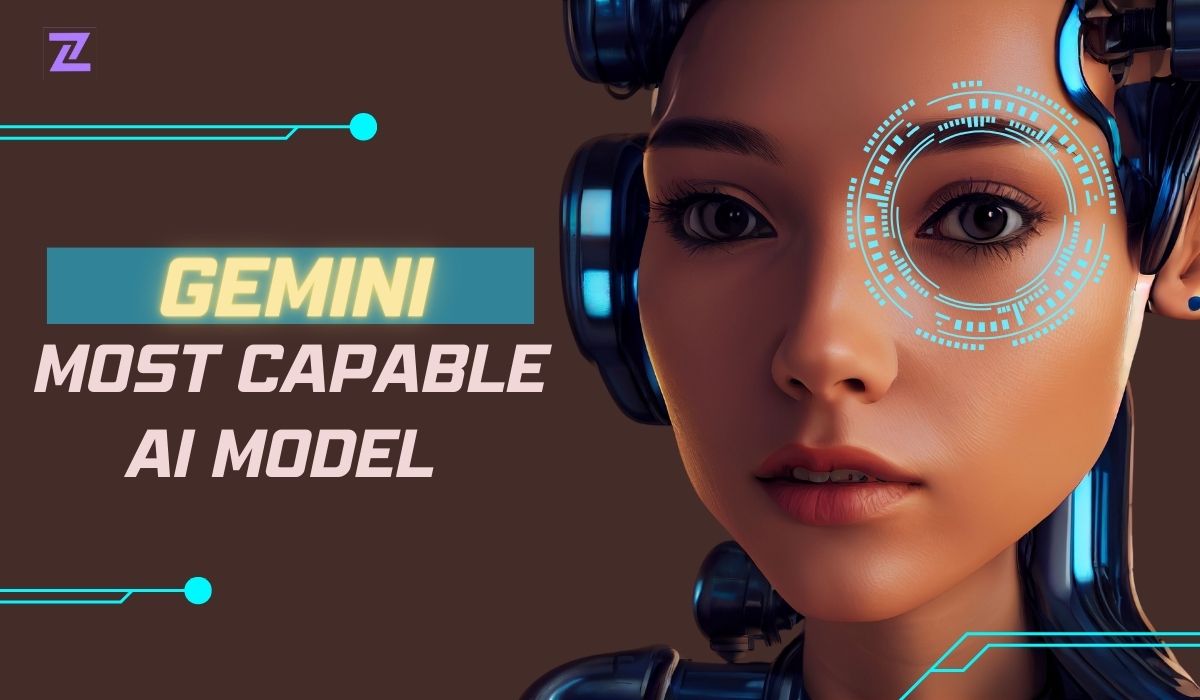
In Artificial Intelligence, Google has set a new benchmark with the introduction of Gemini, their largest and most capable AI model. Positioned as a groundbreaking advancement, Gemini promises to outperform existing models, showcasing advanced reasoning across various formats. Here we will delves into the key features of Gemini, its state-of-the-art performance, next-generation capabilities, and the core principles of responsibility and safety guiding its development.
The Genesis of Gemini :
Gemini emerges on the heels of Google's commitment to AI innovation, and it marks the first major announcement since the global AI safety summit held last month. This summit saw tech giants collaborating with governments on testing advanced AI systems before and after their release, emphasizing a shared responsibility for the safe development of AI technologies.
State-of-the-Art Performance :
Google asserts that Gemini, particularly the Ultra model, surpasses state-of-the-art AI models, including ChatGPT's most powerful version, GPT-4, in a series of benchmark tests. These tests, spanning 32 different scenarios, cover reasoning and image understanding, where Gemini demonstrated superiority in 30 out of 32 tests. The Pro model, another variant of Gemini, outperformed GPT-3.5, the backbone of the free-access version of ChatGPT, in six out of eight tests.
Multimodal Capabilities
Gemini distinguishes itself as a "multimodal" AI model, showcasing the ability to comprehend and process diverse data formats simultaneously. Beyond text, Gemini is designed to understand audio, images, video, and even computer code. This versatility positions Gemini as a multifaceted tool with applications spanning various domains.
Integration into Google Products :
Gemini is not just a theoretical advancement; it's set to be seamlessly integrated into Google's products, starting with an upgrade to Google's chatbot, Bard. The release of Gemini is initially planned in more than 170 countries, excluding the UK and Europe, where regulatory clearances are being sought.
The most powerful iteration of Gemini, named Ultra, is currently undergoing external testing and is slated for public release in early 2024. Ultra is reported to be the first AI model to outperform human experts in multitasking, scoring 90% on the MMLU (Multitasking Multidisciplinary Language Understanding) test. This test covers a spectrum of subjects, including mathematics, physics, law, medicine, and ethics. Ultra's capabilities will extend to powering a new code-writing tool called AlphaCode2, positioning it to outperform 85% of competition-level human computer programmers.
Responsible AI Development :
Google emphasizes a commitment to responsibility and safety in the development and deployment of Gemini. Ethical AI practices, user privacy protection, and safety protocols are integral components of Gemini's design philosophy. The model is built to mitigate biases, uphold transparency, and ensure that user privacy is safeguarded through stringent security measures.In line with the agreements made at the AI safety summit, Google is in discussions with the UK government for the AI Safety Institute to carry out tests on Gemini. This collaborative approach aims to assess the performance and safety of the most advanced, or "frontier," models.
While the Pro and Nano models of Gemini are set for release, the regulatory landscape has prompted delays in the UK and EU. Google is working closely with local regulators to address any concerns and ensure compliance with regional standards.
Advancing Reasoning and Novel Capabilities :
Promotional videos showcase Gemini's capabilities, highlighting scenarios where the Ultra model displays advanced reasoning. From understanding handwritten physics homework to analyzing drawings and identifying scenes in videos, Gemini exhibits novel capabilities that push the boundaries of what AI models can achieve.
Towards Artificial General Intelligence (AGI) :
The question of whether Gemini represents a significant step towards Artificial General Intelligence (AGI) is addressed by Demis Hassabis, CEO of Google's DeepMind. While acknowledging that multimodal foundational models like Gemini are crucial components of AGI, he emphasizes that there are still aspects missing, requiring ongoing research and innovation.
Hassabis clarifies that Gemini's training data is sourced from various places, including the open web. This disclosure comes amidst ongoing concerns in the publishing and creative industries about the use of copyrighted content by AI companies to train models.
Gemini stands as a testament to Google's commitment to pushing the boundaries of AI innovation while prioritizing responsibility, safety, and ethical considerations. The model's performance, versatility, and integration into real-world applications mark a significant stride forward in the evolution of AI technologies. As Gemini becomes a pivotal player in Google's suite of products, it not only signifies a new era in AI capabilities but also underscores the imperative of responsible AI development in collaboration with governments and regulatory bodies. The journey towards AGI continues, with Gemini representing a noteworthy milestone in this unfolding narrative of artificial intelligence.